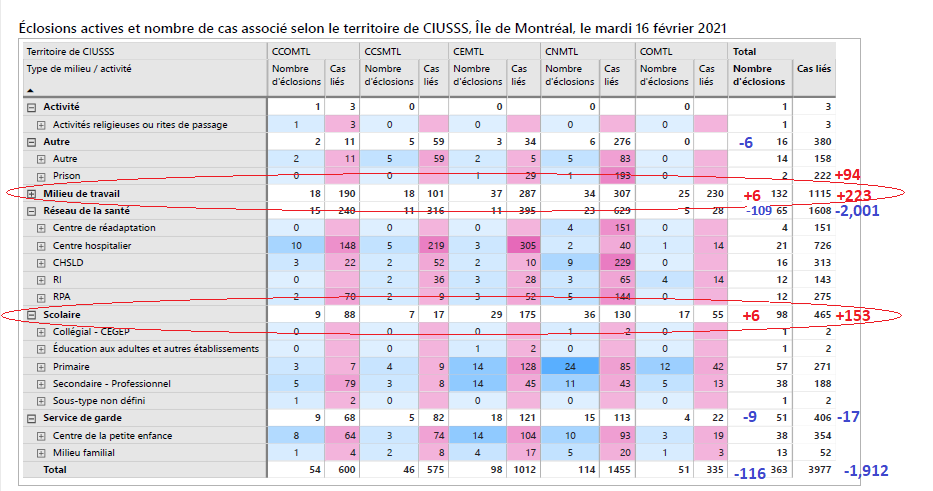
1) The number of cases involving #COVID19 variants now appears to be rising faster in Quebec than in Ontario, the latest tallies by the two provinces suggest. In this thread, I will examine what this means as Quebec considers easing restrictions even after the March break. 

2) Since Feb. 13, Ontario has reported an increase of 82 cases of the more contagious B117 variant and three more cases of the B1351 variant. Quebec is not reporting its numbers the same way, with only 16 confirmed cases of variants.
3) However, during the same period Quebec has confirmed an increase in five cases of variants and has reported 236 presumptive cases (up by 63 from the day before), with most likely occurring in the Montreal area and involving the B117 lineage. 

4) Ontario Public Health does not report presumptive cases, so the comparison with Quebec might not be a fair one. Perhaps Quebec has cleared a backlog, adding lots of such cases in the past few days. Nonetheless, the latest numbers in Quebec are a cause for real concern.
5) Quebec — like Ontario and jurisdictions around the world — is dealing with two epidemics, really: the old involving the common types that is waning, and the new one involving B117, which is at least 50% more transmissible and deadlier.
6) In that context, it defies logic for Quebec’s public health authorities to recommend on Friday a further loosening of restrictions following the student break on March 8. In contrast, federal authorities urged the exact opposite on the same day. montrealgazette.com/news/local-new…
7) Federal projections warn of 20,000 #COVID19 cases a day by mid-March if measures are relaxed further, which is precisely what Quebec aims to do. Chief public health officer Theresa Tam urged provinces to avoid the “yo-yo-ing effect” of relaxing and reinstating restrictions.
8) In a breaking development, covidecolesquebec.org reported on Friday night that École Marguerite d’Youville has closed due to a suspected #COVID19 case involving a variant. What’s especially worrisome is the school is not located in Montreal but farther afield in Quebec City. 

9) Meanwhile, the old #COVID19 epidemic in Montreal showed more signs of subsiding on Friday, with the city posting 353 cases. The city’s seven-day average has fallen to 19.05 cases per 100,000 residents, the lowest it’s been since the start of December. See the chart below. 

10) On the vaccine front, it looks like Health Minister Christian Dubé has been able to follow through on his promise of boosting #COVID19 vaccinations in Montreal. On Thursday, nurses administered 2,879 more shots, the highest in days.
11) Research has shown the new #COVID19 variants are transmissible for a longer period and that more young people are asymptomatic and carrying them. No wonder the Quebec City school closed. And yet the government wants to relax restrictions. End of thread. 

• • •
Missing some Tweet in this thread? You can try to
force a refresh











